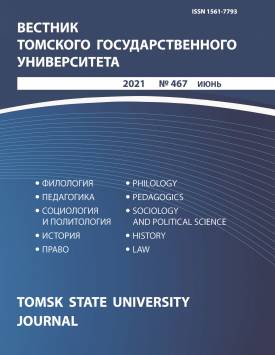The 1913 Bill for Transformation of Turkestan Regional Governing
Turkestan Governorate-General in the early twentieth century was a complex conglomerate of regions and territories where almost each had a peculiar administrative system. The situation was aggravated by the fact that the main chief of the region had different rights and powers in relation to different territories, which sometimes even contradicted each other. The Chief Council was an important authority. Limiting the chief's prerogatives, it was more focused on the interests of individual departments than on the real needs of the region. Finally, the Governor-General did not have the right to supervise the activities of local officials of various departments who in their practice followed not regional, but narrow departmental interests. Naturally, the Tashkent authorities used any excuse to rectify the situation. So, their legislative initiative of 1913 appeared. Despite the fact that there are a number of studies on Russian legislation on Turkestan, the documents drawn up in Tashkent are still unexplored. Among these documents, a special place is occupied by a complex of sources related to the attempt of Turkestan administration to develop a project (legislative initiative) on the management of the Turkestan Governorate-General in 1913. These sources are stored in the Central State Archive of the Republic of Uzbekistan and are largely closed to researchers. This article gives a general description of the position of the main administration of the region and analyzes the proposals the administration made. The 1913 project was another attempt to unify the administration of all regions of the Turkestan Governorate-General and strengthen the power of the main chief of Russian Turkestan by freeing him from custody of the War Office. Drafters of the project proposed to leave the Board of General Directorate with only an advisory vote. At the same time, it was proposed to establish an effective supervision over all the local institutions. The rights of the main chief of the region in the field of education, diplomatic, police, and zemstvo affairs was to be significantly expanded. Local officials of all departments to one degree or another were to be under the control of the Governor-General, who received the right to appoint volost managers without elections. The 1913 project provided indigenous people with the rights of only rural inhabitants. This fully corresponded to the essence of the Stolypin reforms and was aimed at the spread of civil property rights for the entire region. However, brought to life by acute political necessity, the 1913 project remained without a legislative motion.
Keywords
Turkestan, Russian Empire, Statute for Governing, administration policy, P. Stolypin, Governor General, 1913Authors
| Name | Organization | |
| Vasilyev Dmitry V. | Moscow City Pedagogical University | dvvasiliev@mail.ru |
References

The 1913 Bill for Transformation of Turkestan Regional Governing | Vestnik Tomskogo gosudarstvennogo universiteta – Tomsk State University Journal. 2021. № 467. DOI: 10.17223/15617793/467/23
